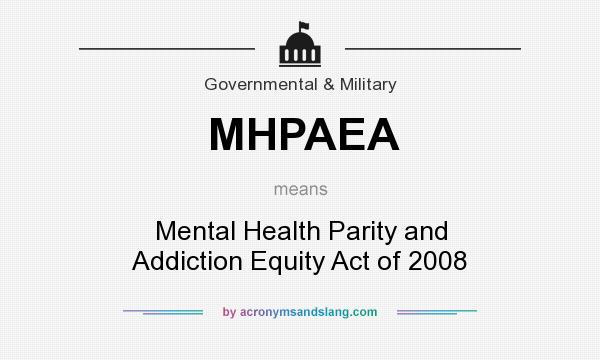There are various types of insomnia. It is necessary for you to figure out if you have acute or persistent insomnia. Intense sleeping disorders is brief term while chronic insomnia last for Rehabilitation Center a very long time or is persistent. There is likewise primary and secondary insomnia. Main insomnia implies you are having problems sleeping however those problems are not connected to an illness.
Insomnia can slow emotional processing making it hard for mental health treatments to work. This implies healing can take longer for people who are doing not have sleep. For example, if you are a recuperating addict, insomnia can make the recovery process harder and result in relapse if not treated. It can likewise cause more damages.
There will be no misinterpreting it for something else. You will be moody, hungry, and irritable and have a difficult time focusing or remaining concentrated on jobs. Every thing will get on your nerves and you will discover it hard to manage your mood swings. Research study has actually shown that a person losing even one night of sleep can be compared to that of a person who is legally intoxicated individual.
If you are driving erratically due to sleep deprivation, that might be thought about reckless driving. Consider it, you might actually injure someone or yourself if you are driving while sleep denied. Many newspaper article center on accidents that took place because a motorist dropped off to sleep at the wheel. There has been research study studies done on people who go extended durations of time without sleeping.
There have been some to report total character modifications, from a delighted character to mad character, and it did not alter back to delighted even after getting a great quantity of sleep. Sleep deprivation can impact your work capabilities also. What if you are an air traffic controller or a brain surgeon? You need to be the most alert you can be.
Not known Details About How Mental Health Affects Presidents
When you determine how to get good sleep, you will be able to easily execute such strategies into your life and quickly feel the impacts of great sleep. There are lots of methods you can use to guarantee you get a great night's sleep. Ensure you do not have a great deal of distractions like the tv or radio playing.

This will help your body get utilized to when it is supposed to get up and fall asleep. Working out during the day can assist you rest much better in the evening but ought to be done a minimum of three hours before you go to bed - how meth affects your mental health clouded. If for some reason you still can't go to sleep, take part in a relaxing activity such as a warm bath or reading.
Likewise, don't take naps late in the day and ensure you have an excellent sleep environment. If you are not having any luck resolving your sleep problems after attempting several of these strategies, it would be a great idea to meet with a therapist to assist you determine what is really https://cristianbvth378.edublogs.org/2020/10/21/10-easy-facts-about-what-is-mental-health-counseling-explained/ incorrect with your sleep patterns.
By overcoming issues related to your mental health, your sleep problems might fix themselves. Sleep is incredibly important. Making sleep a top priority in your life will lead to favorable results. So put yourself first and get some good rest! - what to do when mental health affects work.

Many people understand firsthand that sleep impacts their mental state. After all, there's a factor it's stated that someone in a bad mood "awakened on the wrong side of the bed." As it turns out, there's rather a bit of truth behind this colloquial stating. Sleep is carefully linked to mental and psychological health and has actually shown links to depression, anxiety, bipolar illness, and other conditions.
Getting My How Being Forced To Carry A Child Affects Mental Health To Work
Mental health conditions tend to make it more difficult to sleep well. At the same time, poor sleep, consisting of insomnia, can be a contributing element to the initiation and worsening of psychological health issue. Both sleep and psychological health are complicated concerns affected by a multitude of aspects, however, provided their close association, there is strong reason to think that improving sleep can have a helpful influence on psychological health and can be an element of treating numerous psychiatric conditions.
In NREM (non-rapid eye movement) sleep, general brain activity slows, however there are fast bursts of energy. In Rapid Eye Movement, brain activity chooses up quickly, which is why this phase is related to more intense dreaming. Each stage contributes in brain health, enabling activity in various parts of the brain to increase or down and allowing better thinking, finding out, and memory.
Enough sleep, particularly Rapid Eye Movement sleep, facilitates the brain's processing of psychological information. During sleep, the brain works to evaluate and keep in mind thoughts and memories, and it appears that a lack of sleep is specifically damaging to the consolidation of favorable psychological material. This can affect mood and emotional reactivity and is connected to mental health conditions and their intensity, including the threat of suicidal concepts or habits.
Instead, it is becoming clear that there is a bidirectional relationship between sleep and mental health in which sleeping issues may be both a cause and repercussion of mental illness. Obstructive sleep apnea (OSA) is another aspect of sleep that has been linked to psychological health. OSA is a condition that includes pauses in breathing during sleep and a reduction in the body's oxygen levels, producing fragmented and disturbed sleep.
Although more research study is required to determine the diverse connections between sleep and mental health, the existing evidence shows that there is a complex relationship that can be affected by various consider any particular person's case (how snapchat affects mental health). The way that sleep and mental health are intertwined ends up being much more apparent by reviewing what is learnt about how sleep is tied to a variety of specific psychological health conditions and neurodevelopmental disorders.
The Ultimate Guide To How Stress Affects Your Mental Health
Around 75% of depressed individuals show signs of insomnia, and many individuals with anxiety also struggle with extreme daytime drowsiness and hypersomnia, which is sleeping too much. Historically, sleeping problems were seen as a consequence of depression, but growing evidence suggests that poor sleep may cause or exacerbate depression. The difficulty in identifying clear domino effect shows what is believed to be a bidirectional relationship in which sleep issues and depressive signs are mutually strengthening.
For example, for at least some people, a focus on enhancing sleep may have a corollary benefit of minimizing the symptoms of anxiety. Seasonal depression is a subtype of anxiety that frequently affects individuals during times of the year with reduced daytime hours. For example, individuals in northern climates might experience seasonal affective disorder throughout the fall and winter season.
Not remarkably, then, people with seasonal affective condition tend to sleep excessive or too little or experience modifications to their sleep cycles. Every year, anxiety conditions in America impact an approximated 20% of grownups and 25% of teenagers. These disorders produce excess worry Get more info or worry that can affect daily life and develop risks for health issues consisting of heart problem and diabetes.